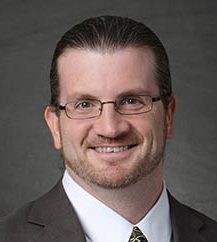Spinal Cord Stimulation Q&A with Dr. Joseph Christiano
Jul 6, 2022September 28, 2018
Procedural Questions
Q: How Long Is the Hospital Stay?
A: Both the trial and permanent placement procedures are often performed on an outpatient basis. At times, patients will spend one night in the hospital after the permanent implantation procedure.
Q: I Feel New Pain After Surgery. Has the Procedure Failed?
A: It is not uncommon to feel some pain or discomfort from the surgical procedure itself for up to a week after the procedure. If you are concerned about the pain or if the pain intensifies, please contact our office and we will be more than happy to answer your questions.
Q: When Can I Return to Normal Activity?
A: For the first two weeks after surgery, you will be encouraged to walk and perform non-strenuous exercises within your physical limits. These exercises should not stretch or twist the spine or back. During this time, we will want you to minimize time spent sitting. You will not be able to drive. Strenuous activity should be avoided for at least 4-6 weeks or until cleared by our office.
Q: Is There Anything I Cannot Do After the Recovery Period?
A: Patients will be able to return to most of their normal activities after the 4-6 week recovery period. Chiropractic manipulation should be avoided or should be discussed with your surgeon. Extremely strenuous activities involving back muscles and torsion can cause complications as well.
Q: Will I Feel or See the Implant?
A: Implants are getting smaller with a lower profile. However, since the pulse generator is implanted directly under the skin you will be able to feel it when pressing on the area. Others will most likely not see the implant when looking casually. Patients will get used to the implant’s presence very soon after the procedure.
Stimulator Features and Use
Q: Do I have Control Over the Stimulation Settings?
A: Yes. Your pain will vary throughout the day due to natural cycles, activity and other considerations. You will be able to modify certain stimulation settings to address your pain levels at any given time. The stimulator may also be adjusted more precisely by a technician at our office.
Q: How Many Hours Per Day Should the Stimulator Be Used?
A: The stimulator has been tested and approved for all day use. As such, you can decide to use the it 24 hours a day or on an as needed basis. It largely depends on your comfort level at any given time. Many patients sleep with their stimulator on a low setting or turned off. Others keep a consistent setting day and night.
Q: Will I Feel Sensations?
A: Some patient report feeling mild sensations, while others feel nothing. Almost all quickly become accustomed to any sensation they may have from the SCS. You should not feel significant discomfort or new or worsened pain when you turn on your stimulator.
Q: Will I Set Off Alarms at Airports?
A: You may or may not set off a metal detector, depending on its sensitivity. You will be given an implant card to let authorities know that you have the device.
Q: What About Diagnostic Imaging?
A: Most standard diagnostic imaging is compatible with your implant; however you should always let your doctor and the imaging center know that you have an implanted SCS.
Q: How Do I Charge the Battery?
A: Charging the battery is a straightforward process. The charger is portable and wireless and simply needs to be placed over the pulse generator. Our technicians will give you specific instructions based on the model of SCS you have.
Results & Effectiveness
Q: Will I be Pain Free After My SCS?
A: SCS is not meant to eliminate all pain, however we expect that pain will be reduced significantly enough to resume activities that the pain may have once precluded. Your trial period will give you a good idea of how much pain to expect after the permanent implant.
Q: Do I Need to Continue on Pain Medication?
A: Depending on how much relief you receive from SCS, you may or may not need to continue your pain medications. Some patients may be able to transition from narcotic to non-narcotic pain medications. Your post-operative visits and pain level history will help us determine the best course of action for your particular circumstance.
Complications and Considerations
Q: Are There Any Risks to SCS?
A: Yes, as with any procedure involving surgery, especially in and around the spine, there are risks. In the hands of an experienced neurosurgeon and by following proper aftercare protocols, these risks can be mitigated. We will discuss your specific risks fully at consultation and you will receive a post-operative packet with instructions on how to minimize common risks associated with SCS implantation.
Q: Can the SCS be Removed?
A: While SCS is meant to be a permanent implant, there are cases where the device can be removed. This is very rarely needed but is a simple outpatient procedure.
Q: Does the Battery Ever Wear Out?
A: Depending on the manufacturer the SCS comes with a long-term warranty against defects and early expiration. If it should fail during or after this period, the replacement of the pulse generator is a relatively straightforward and quick procedure that does not require the repositioning of the leads. As such recovery time is short and discomfort is minimized.
Final Thoughts
Spinal Cord Stimulation procedures have been successfully performed on hundreds of thousands of patients and can truly give you your life back. For most patients, SCS represents a viable, effective option when narcotic medications and complex surgeries are not acceptable options.

Dr. Joseph Christiano, Jr. is a Board-Certified Neurosurgeon with specialty training in Surgical Pain Management and Movement Disorder surgery.
Dr. Christiano has additional expertise in Spinal Cord Stimulation, Surgical Pain Management and Deep Brain Stimulation for Parkinson’s Disease and Tremor.
